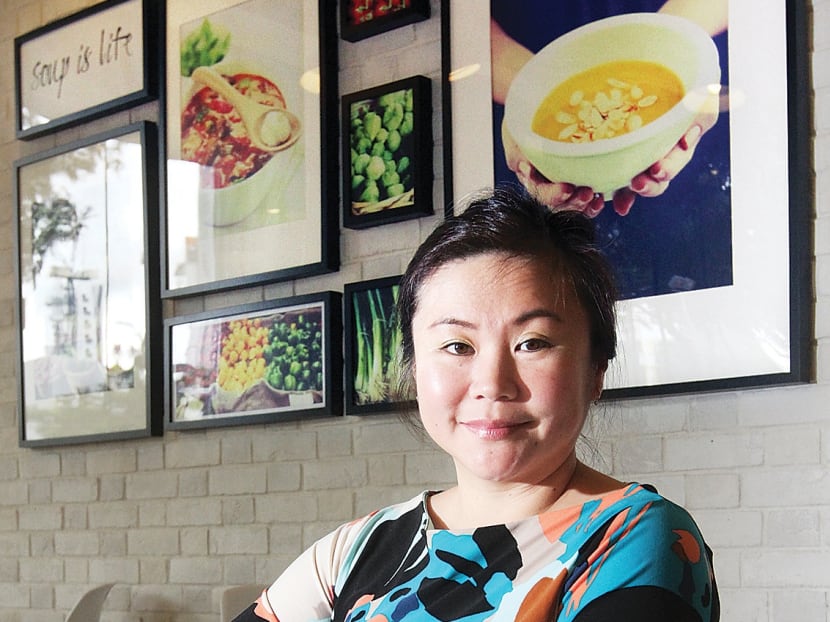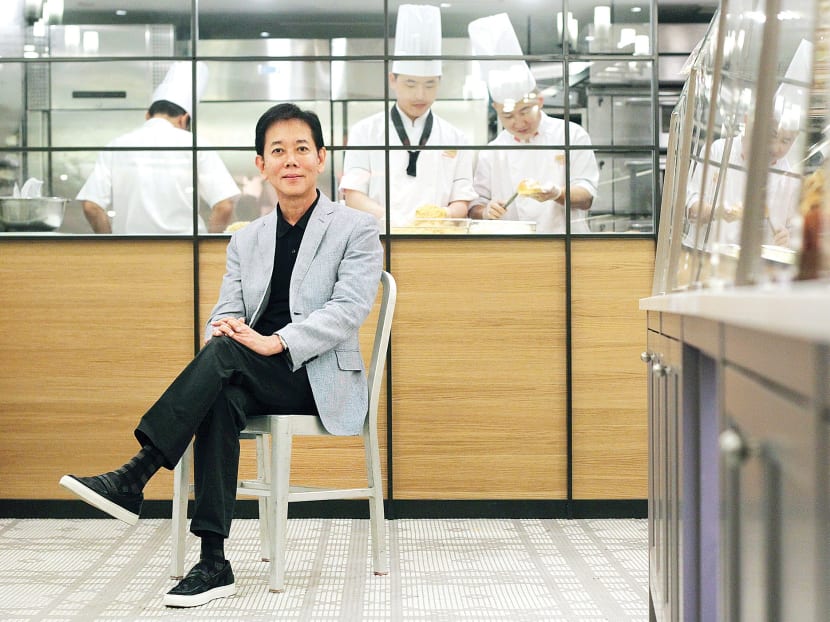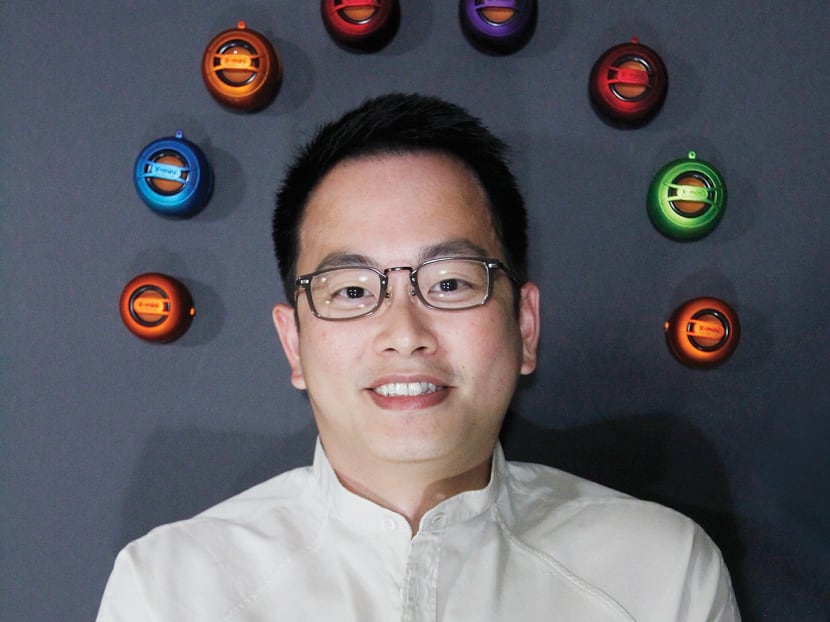Businesses stay loyal to their roots
SINGAPORE — When Soup Spoon first opened in 2002, founder Anna Lim had no idea how difficult it would be to run the business. From peeling potatoes to serving customers and cleaning the kitchen, Ms Lim, who was new to the food and beverage business, put everything she had into setting up the first outlet at Raffles City. She hardly left its side.



SINGAPORE — When Soup Spoon first opened in 2002, founder Anna Lim had no idea how difficult it would be to run the business. From peeling potatoes to serving customers and cleaning the kitchen, Ms Lim, who was new to the food and beverage business, put everything she had into setting up the first outlet at Raffles City. She hardly left its side.
“I lost count of the number of nights I worked until 3am or simply spent the night sleeping in the store,” she said. “What kept me going is my dream to create the Starbucks of soup. I do not know when that will happen, but I know there is nothing else I want to do more than this.”
Today, Ms Lim’s passion project has grown to 20 outlets across the island and Soup Spoon is leading the way as one of Singapore’s thriving brands, poised for a bright future.
But the progress made by Soup Spoon was not through sheer will alone. Adaptability and innovation played a role in helping it stay relevant and ahead of the curve.
Case in point: Dining space overhaul in 2012.
“Our concept is ‘living kitchen’ — to create a cosy and open space where customers have an open view of our kitchen and to see how the soup is prepared, and sit down and enjoy it with their friends, just like what they would do at home,” said Ms Lim, adding that inspiration was drawn from Starbucks.
“We started as a company that filled a market gap, wherein soup kitchens were not yet popular. But we now want to challenge people’s habits and get them to leave their homes to have a bowl of soup in a third space,” said Ms Lim.
“Something that I believe Singaporean companies do very well is innovation — to take something that’s been done, improve it and make it our own. That’s something Soup Spoon as a Singapore brand continues to strive for,” she added.
Innovation is also a key principle that has guided Singapore food and beverage titan George Quek through his journeys in setting up and managing multiple chains, including BreadTalk, Food Republic and Din Tai Fung.
Since rolling out its pork-floss buns 14 years ago, BreadTalk has grown by leaps and bounds and is now listed on the Singapore Exchange, owns and operates 800 bakeries in 16 countries, and has also diversified into restaurants.
“BreadTalk has been studied and emulated by my competitors. Our biggest challenge going forward is to innovate and improve the successful formula that we have created. That’s why our stores have, up till now, remained within four generations in terms of design,” Mr Quek said.
These changes are made to reflect Mr Quek’s vision of the brand as a statement of lifestyle and taste, something that he believes will continue to help BreadTalk stand out.
“BreadTalk is not just about making tasty bread and selling them. Our stores are designed in the vein of a fashion boutique, with a bold combination of marble and glass. This was unprecedented in the market,” he said.
“We also constantly review our products. Some 70 per cent of our product line-up has been phased out, and we constantly innovate with a culinary approach that brings a wider variety of ingredients and techniques to our customers.” And there is no resting on his laurels for Mr Quek. Dominance can easily be taken away if the business is unable to move with the times and widen the gap between its competitors, he said.
“I plan to grow BreadTalk to 1,000 bakery outlets by the end of this year and 2,000 outlets across all brands by 2018. That’s not going to be easy — many brands are famous for 10 years and then they disappear,” Mr Quek added.
“To avoid that, we need to keep learning and feeling the pulse of the market … and I’m ready to make very drastic changes, if necessary.”
Meanwhile, another young Singaporean entrepreneur shares the same ambition to not only expand his business here, but also onto the global stage.
Mr Reuben Lee sees a lot of growth potential for Xmi, a company he founded with his brother Ryan in 2007 to produce mini portable speakers.
“Our sales have averaged S$28 million for the past three years; 90 per cent of our sales come from overseas, with Europe being our largest market followed by the United States. We can grow that much more, especially in the US. But we are very much aware of the challenges in the tech industry,” Mr Lee said.
To survive in a market where staying ahead of rivals is a constant fight, Xmi has to live and breathe innovation. “Since the beginning, we’ve had to deal with copycats and increased competition. That has forced us to innovate more and often, to add functions to our products and even redesign them,” Mr Lee said.
“Today, we spend a lot on research and development furthering our core competency, which is to deliver good sound regardless of size. About one-third of all our resources go into this area and we have, to date, up to 114 intellectual property applications.
“The times have changed. In the past, the original iPod was what inspired our business and portable speakers were all about the music. Today there are more people using smartphones and tablets. There is a convergence of devices and functionalities, and we have to be able to deliver products to meet that,” he added. “To reflect that, we recently launched a Bluetooth-enabled (capsule speaker) with a voice-cancellation microphone — effectively providing also a conference call capability. We are also looking to develop more wireless products around Wi-Fi connectivity.”
As the three companies continue to transform and adapt to the ever-changing times ahead, what will remain unchanged are their roots to Singapore, the three businessmen told TODAY.
“BreadTalk isn’t just about becoming the next Merlion and Sentosa of Singapore. We are an international business, and our next phase of growth will very much focus on China,” said Mr Quek. “But we will always be a Singaporean brand and remain headquartered here. We are aware of that status and responsibility — that is what pushes us on.”
Ms Lim, who plans to explore the US for overseas expansion, also sees Soup Spoon as an international business. “But we will always have our roots here. This is where our base is and where we will continue to try new things.”
Read more stories in our National Day Special:
- Longing for the good old days
- Preserving memories of a changing nation
- Nostalgia: A force for good, but a double-edged sword?
- Tiong Bahru: A hip and miss affair
- Shops, museums in Katong seek to preserve Peranakan culture
- Town of firsts contemplates modernity
- Balestier’s vintage shops hold on to fading trade
- Heritage buildings given new lease of life
- Newer structures shaping Singapore’s identity too
- Old brands, new strategies
- Businesses stay loyal to their roots
- Singapore’s sporting greats
- Sports: Young guns make their mark
- Sports: It’s all in the delivery
- The A to Z of S’pore’s arts and entertainment scene
- The future of S’pore’s arts and entertainment scene
- #TODAYremembers: An interactive map featuring our readers' favourite memories about Singapore









